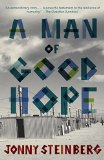Summary | Excerpt | Reviews | Beyond the Book | Readalikes | Genres & Themes | Author Bio

Critics' Opinion:
Readers' Opinion:
First Published:
Jan 2015, 336 pages
Paperback:
Dec 2015, 336 pages
 Book Reviewed by:
Book Reviewed by:
Poornima Apte
Buy This Book
Chapter 1: Mogadishu
In describing his childhood there is really only one place for Asad to begin. It was early one morning; he is not sure of the day, but the month was January 1991. This he understands from collective memory; nobody who knows Mogadishu, the capital city of Somalia, is unaware of what happened that month.
He believes that he was eight years old. Whether he knew before that he was Daarood and that others were not is irretrievable now, but he certainly came to know it on that day.
In January 1991, militias began to attack the northern parts of Mogadishu. The men in these militias were Hawiye, and they wanted to overthrow the government of President Mohamed Siad Barre, who was Daarood.
"The militias were based in the countryside outside the city," Asad tells me. "They controlled the north of the country. They would come into Mogadishu to attack and regroup, attack and regroup, in waves.
"They came at night, and their target was all Daarood men. As far as they were concerned, Daarood men were government men. So, at night, the Daarood would leave their homes and gather together in government buildings for protection. They would leave women and children and the elderly at home. In Islam, one does not kill civilians—that means women, children, boys under fifteen, and the very old. Daytime, the men came back to see their wives."
Asad's father was sleeping away at nights, coming home during the day. Then one morning he did not come back. Or the next, or the next. It had been five days.
"When I look back now, I see that if I had been more focused on my mother, I would have been aware. There were three women staying in the house. I see now that my mother was hiding them. She must have discovered that some neighbors who were not friends had seen these three women. She must have known that she was going to get finger-pointed. I can see that now. Back then, I could not grasp that a person as solid as a parent could feel fear.
"I woke in the morning and found my mother pressed up against the front door, staring through the cracks. I came up next to her and looked too. There were five militiamen on our property. They were moving around the yard. I had no fear. I wanted to look at them closer, not through cracks. I tried to open the door. My mother grabbed me and pulled me to her. I was right up against her leg. I still did not share her fear. I find myself thinking now: Where were my brothers and sisters? I don't remember. In my mind it is just me and my mother. We were watching the militiamen. Three of them came up to the door and knocked very hard. My mother did not want to let them in.
"They pushed against the door and she pushed back. Then they started kicking, thumping the door. My mother pushed herself heavily against it. The door started breaking. I saw a pair of hands come through. They tore a hole out of the door, big enough for a person to climb through. My mother just stood there, as if there was still a door to push against. Still, she held me to her leg. The first militiaman just stared at her. She stared back. Then the second militiaman pushed the first one out of the way and shot my mother in the chest."
I wonder what the militiamen did when they entered the house. Did they slaughter the women hiding there? For how long did they remain? How much time elapsed between their departure and the arrival of the first friendly adults, for between those two moments the children were, I presume, alone with their mother's corpse. What did they make of it? What happened to their world during those minutes or hours?
Each time these questions find their way to the tip of my tongue, they stop and turn around, and I swallow them back down. I do not have the courage. I simply record what comes from his mouth.
And so I know only that he spent one further night at his parents' home and that the following day his aunt—the wife of his father's brother—whisked the five children across the city to her house. Later that evening, Asad's uncle appeared, the first adult male Daarood he had seen in days. He does not recall for how long he and his siblings stayed there. "When I say 'a few days,'?" he advises me, "that could mean anything from two nights to two weeks. In any case, after some time, we split up. Rahma and I went with my uncle. The other children went with my aunt. We walked out of Mogadishu and kept walking. I think that that was the last day it was possible for Daarood people to sleep in Mogadishu."
Excerpted from A Man of Good Hope by Jonny Steinberg. Copyright © 2015 by Jonny Steinberg. Excerpted by permission of Knopf, a division of Random House LLC. All rights reserved. No part of this excerpt may be reproduced or reprinted without permission in writing from the publisher.


The Funeral Cryer by Wenyan Lu
Debut novelist Wenyan Lu brings us this witty yet profound story about one woman's midlife reawakening in contemporary rural China.
Your guide toexceptional books
BookBrowse seeks out and recommends the best in contemporary fiction and nonfiction—books that not only engage and entertain but also deepen our understanding of ourselves and the world around us.